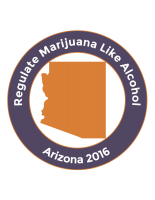On Election Day in November, two major states in the Northeast legalized recreational cannabis: Maine and Massachusetts. It seems that a handful of other states in the region are looking to legalize recreational cannabis now that their neighbors have done so.

In New Hampshire, a bipartisan bill was introduced on January 4th to establish “a commission to study the legalization, regulation, and taxation of marijuana.” The commission formed by House Bill 215 aims to “study the experiences of states that have or are in the process of legalizing and regulating the recreational use of marijuana by adults, with particular attention to be given to the ways the changes in marijuana laws in Maine and Massachusetts, as well as Canada, impact our state,” the bill states. Notably, the bill provides for a representative from the Marijuana Policy Project to be a member of the committee.

New Hampshire Senate Minority Leader Jeff Woodburn (D) says he plans to sponsor a recreational legalization bill separate from House Bill 215. According to the New Hampshire Union Leader, Woodburn would work with lawmakers and stakeholders to set a timeline and regulatory framework.
In Connecticut, a number of lawmakers have sponsored bills this session that would legalize recreational cannabis. Senate President Martin Looney (D) filed a bill that would legalize, regulate and tax cannabis, with the tax revenue going to the state’s general fund, according to the New Haven Register. State Rep. Melissa Ziobron (R) introduced a piece of legislation that would legalize adult use over the age of 21. Lawmakers are optimistic that with Massachusetts legalizing it, perhaps the outcome will be different than previous failed attempts to push cannabis legalization.

Photo: David Wilson, Flickr
Lawmakers in Rhode Island told reporters they want to be the first state to legalize recreational cannabis via the state legislature, rather than a ballot initiative, the most common path to legalization for other states. Sen. Joshua Miller and Rep. Scott Slater of Rhode Island, both Democrats, plan to introduce a legalization bill, the seventh year in a row that such a bill has been introduced in the state. They are also hopeful that after Massachusetts’ legalized it in November, they will have more success this time around. “Our constituents think it is time for lawmakers to pass this legislation, and we should listen to them,” says Miller. “If we fail to pass the bill this year, we will lose significant ground to Massachusetts.” Their bill would tack on a 23% tax on cannabis sales.
In each state’s case, lawmakers are keeping a close eye on Massachusetts and Maine’s regulations and tracking their progress. While the bills in the state legislatures are nascent in their journey to becoming law, the important takeaway is that geographic proximity to states with legalized cannabis is a catalyst for reform in New England.






























